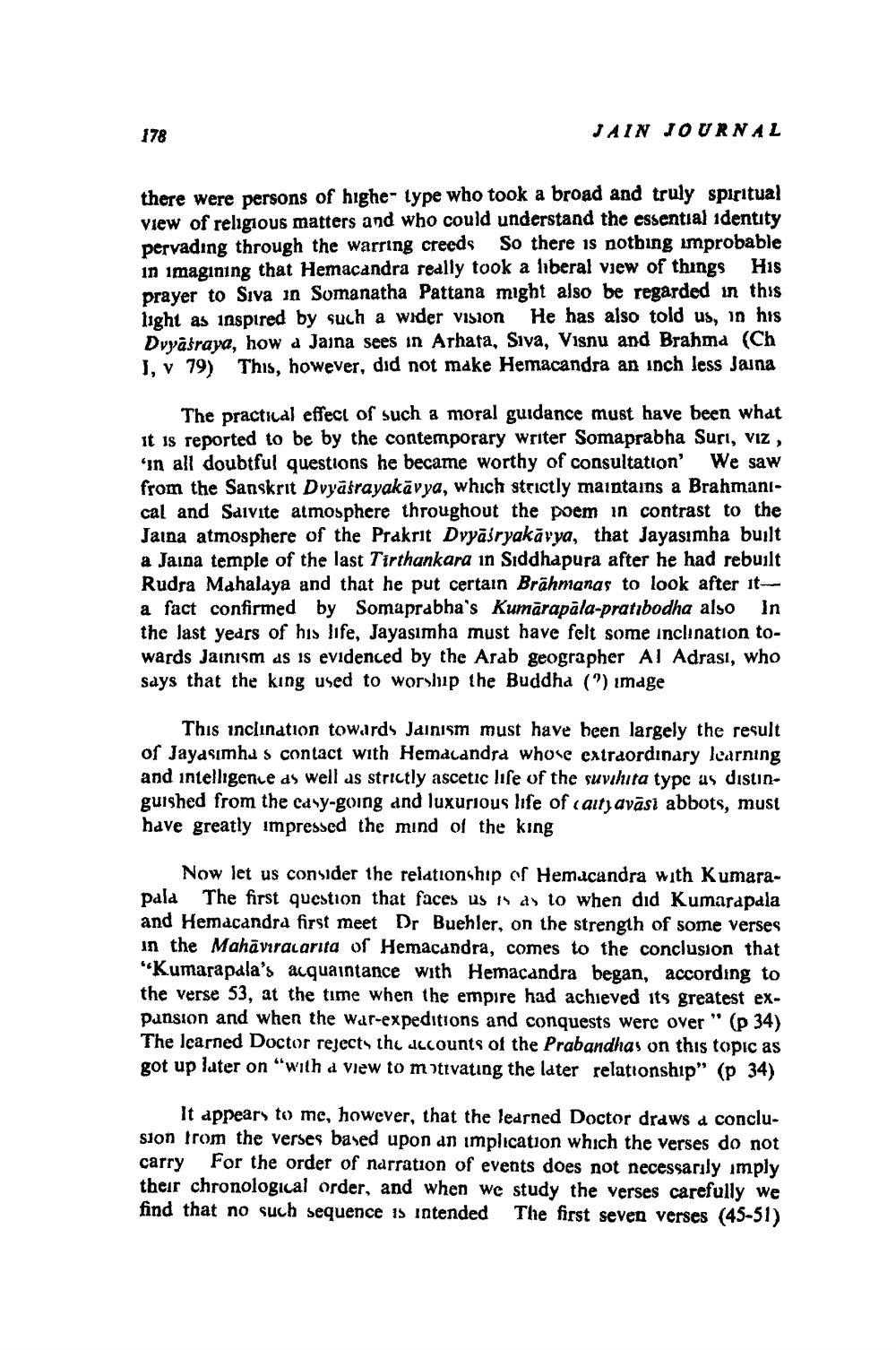________________
178
JAIN JOURNAL
there were persons of highe- type who took a broad and truly spiritual view of religious matters and who could understand the essential identity pervading through the warring creeds So there is nothing improbable in imagining that Hemacandra really took a liberal view of things His prayer to Siva in Somanatha Pattana might also be regarded in this light as inspired by such a wider vision He has also told us, in his Dvyasraya, how a Jaina sees in Athata, Siva, Visnu and Brahma (Ch I, v 79) This, however, did not make Hemacandra an inch less Jaina
The practical effect of such a moral guidance must have been what It is reported to be by the contemporary writer Somaprabha Suri, viz , 'in all doubtful questions he became worthy of consultation' We saw from the Sanskrit Dvyasrayakävya, which strictly maintains a Brahmanical and Saivite atmosphere throughout the poem in contrast to the Jaina atmosphere of the Prakrit Dvyāíryakávya, that Jayasimha built a Jaina temple of the last Tirthankara in Siddhapura after he had rebuilt Rudra Mahalaya and that he put certain Brāhmanas to look after ita fact confirmed by Somaprabha's Kumarapala-pratibodha also in the last years of his life, Jayasimha must have felt some inclination towards Jainism as is evidenced by the Arab geographer Al Adrasi, who says that the king used to worshup the Buddha (?) image
This inclination towards Jainism must have been largely the result of Jayasımha s contact with Hemalandra whose extraordinary learning and intelligence as well as strictly ascetic life of the suvihita typc as disunguished from the casy-going and luxurious life of caits avāsi abbots, must have greatly impressed the mind of the king
Now let us consider the relationship of Hemacandra with Kumarapala The first question that faces us is as to when did Kumarapala and Hemacandra first meet Dr Buehler, on the strength of some verses in the Mahaviracarita of Hemacandra, comes to the conclusion that "Kumarapala's acquaintance with Hemacandra began, according to the verse 53, at the time when the empire had achieved its greatest expansion and when the war-expeditions and conquests were over " (p 34) The learned Doctor rejects the dccounts of the Prabandhas on this topic as got up later on "with a view to motivating the later relationship" (p 34)
It appears to me, however, that the learned Doctor draws a conclusion from the verses based upon an implication which the verses do not carry For the order of narration of events does not necessarily imply their chronological order, and when we study the verses carefully we find that no such sequence is intended The first seven verses (45-51)




